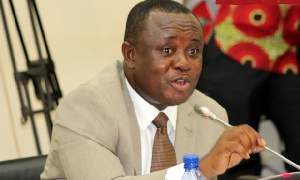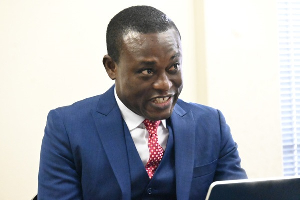Deputy Speaker of Parliament, Joseph Osei-Owusu, has stated that elected leadership are a reflection of the people who elect them into to office.
According to him, there is no way the elected would be any different from those who elected them into office; and expressed surprise that corruption is usually discussed as if only politicians engage in corrupt practices.
The 1st Deputy Speaker said these in a speech he delivered as guest speaker on Saturday at a workshop for leadership of Parliament and selected parliamentary committees in Koforidua.
The workshop was organized by the Ministry for Government Procurement under the theme, ‘Enhancing Parliamentary Oversight through public procurement.
Mr. Joseph Osei-Owusu argued the attitude that an office holder displays in public office determines his character. And stressed Ghanaians should be bold enough to admit they are dishonest.
“We don’t like following rules,” he stated. “The biggest challenge is how we should deal with our dishonesty as a people?”
“I dare say there is not a single person who does not know the rules of the laws of procurement; whether it is the contractor applying or the officer.”
“If the rules are circumscribed and a person wins the contract, then the officer is a good man but if another gets the contract, then the officer is accused of taking bribe and therefore he or she is corrupt.”
He averred that people make claims of favours from public officers when their government is in power. And yet these same people turn round and accuse others of being dishonest, which is weird.
The case of the present generation, he lamented, is already a lost cause and therefore the need to teach and educate the younger generation new values else the situation would continue.
Ghanaians, he said, must recognize that things have changed and would continue to change particularly for those in the public sector.
“We must understand that the days that we shared information we wanted the public to know is over. People will find the information and give the interpretations they want.”
“A lot more people are now vocal and vociferous and not intimidated anymore. They will bring up comparisons across the world to compare with what we are doing here and demand how we conducted the over oversight,” he stated.
General News of Monday, 15 July 2019
Source: ghanacrusader.com













